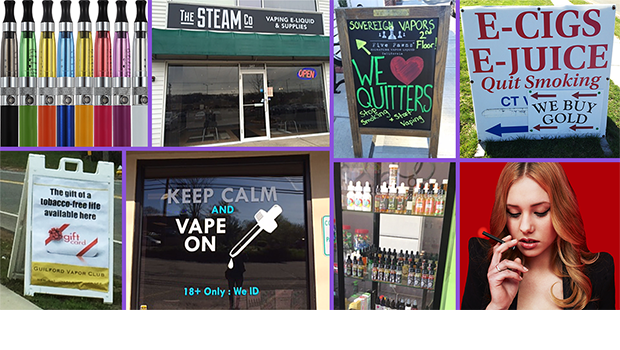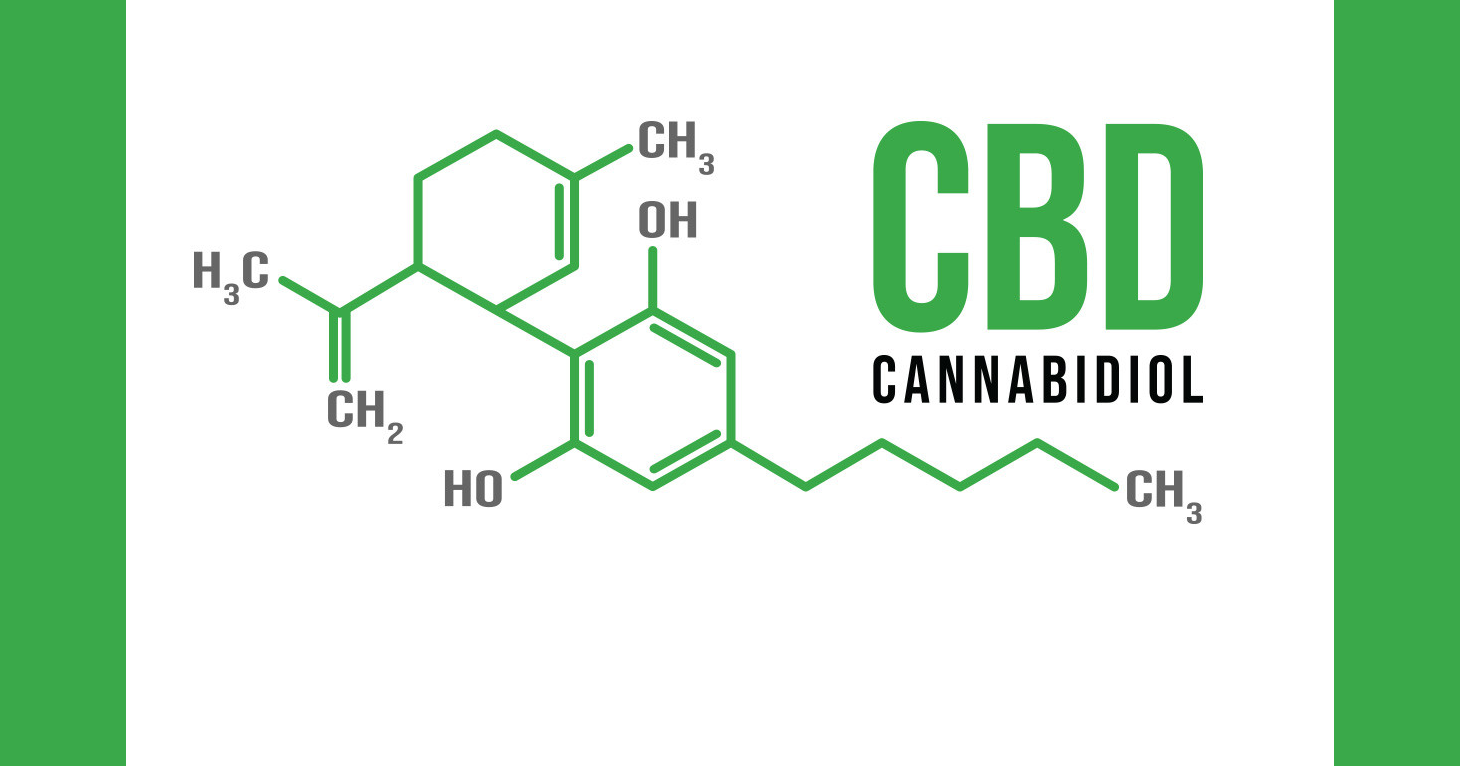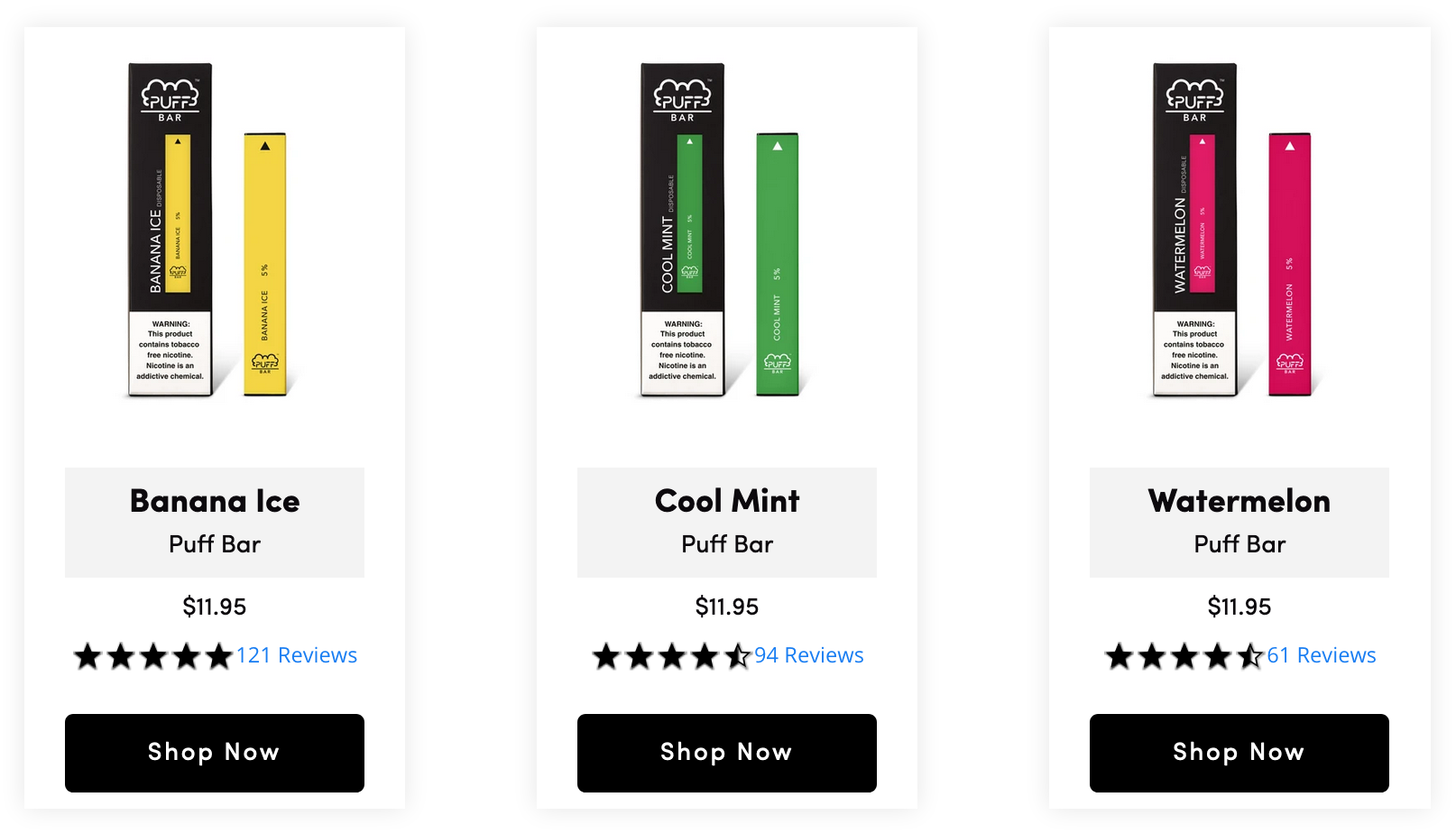
Puff Bar Flavors Resurface Following FDA Ban
FDA says it is aware of the situation but declined to comment on the regulatory status of disposable e-cigarette brand.
Your neighborhood vape shop may not be giving you accurate information.
|
Consumers curious about e-cigarettes should double check the information they are getting at local retail shops. A TINA.org investigation has found that a majority of retailers in neighborhood vape shops that it surveyed are at the least, not giving consumers the full picture of the pros and cons of vaping and, at times are outright deceptive about significant issues regarding the products.
Nearly three-fourths of vape shops that TINA.org visited in Connecticut made health and smoking cessation claims despite the fact no e-cigarette product has been approved for smoking cessation therapy by the federal government. The claims come at a time when the FDA is cracking down on the products, requiring warning labels and banning sales to minors. In May, the FDA published its final rule regarding e-cigarettes that require manufacturers to put health warnings about the dangers of nicotine in ads and on e-cigarette packages. The rule also mandates that companies show that their vaping products meet applicable public health standards before receiving authorization from the FDA to sell them.
E-cigarettes, which are battery powered devices that heat flavored nicotine-laced liquids into vapor, have been at the center of a vigorous battle over tobacco alternative products that has pitted a quickly emerging industry against both state and federal regulators and the entrenched Big Tobacco companies.
Marketers of e-cigarettes have billed them as a safe and viable alternative to cancer-causing traditional cigarettes and, in the absence of regulation, e-cigarettes have rapidly expanded into a $3.5 billion industry. Brick-and-mortar vape shops generate annual sales of more than $300,000 per store, according to the 2015 Vape Shop Index.
But issues regarding the safety and efficacy of the products are far from settled. While a recent British Royal College of Physicians report found that the benefits of e-cigarettes far outweigh the potential harms, several other key reports found that e-cigarettes contain harmful chemicals and can compromise immune systems. A 2014 report by the World Health Organization, for example, stated that for some brands of e-cigarettes, the level of cancer-causing agents in the aerosol “such as formaldehyde and other toxicants like acrolein have been found to be as high as in the smoke produced by some cigarettes.”
In addition, the U.S. Preventive Services Task Force concluded that “the current evidence is insufficient to recommend electronic nicotine delivery systems for tobacco cessation.” The FDA has not approved any e-cigarette product as a smoking cessation therapy. In addition to possible health issues of inhaling the vapor, consumers have reported some devices catching fire, and calls to poison control centers about children swallowing e-liquids that contain nicotine have increased at an alarming rate, a CDC study reported.
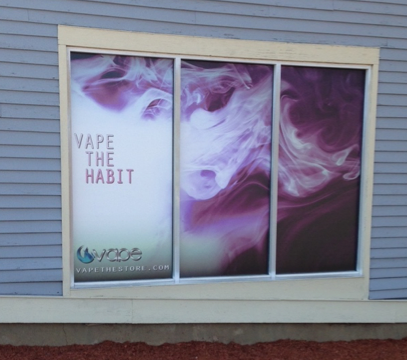
Yet, despite this, a majority of sales representatives at shops visited by TINA.org promoted the products as safe as well as an effective way to quit smoking. A majority also promoted the vaping products as a cheaper alternative to tobacco cigarettes during visits by TINA.org investigators. Some claimed they could be used anywhere despite the fact that in Connecticut, the same restrictions apply to e-cigarettes as tobacco cigarettes and they are banned from use in state buildings, schools and health facilities, among other areas.
An earlier TINA.org investigation of 150 e-cigarette websites nationwide revealed similar misleading marketing issues. As a result of TINA.org’s earlier findings and the urging of health advocates, the FDA opened an investigation into e-cigarette smoking cessation claims.
Lawmakers have pressed for more oversight from the FDA and have urged the FTC to review the industry’s marketing to teens. The FTC has said it is waiting for approval from the White House Office of Management and Budget to launch such a study. In the meantime, under the FDA’s finalized rule, e-cigarettes can continue to be on the market for three years while their manufacturers submit and the FDA reviews their new tobacco applications.
Lots of misinformation
TINA.org’s investigation found that what consumers are being told about the products varies widely depending on which vape store they step into and who is at the counter.
Sales personnel at three shops out of the 15 TINA.org visited did issue some cautions about the vaping products. A salesman at West Haven Vapors said he didn’t recommend vaping for anyone who didn’t already smoke tobacco cigarettes. He told a TINA.org investigator that while it’s healthier than tobacco, vaping shouldn’t be considered “healthy.” A salesman at E-Six Vapors in Branford noted that e-cigarette use in public areas was restricted in the state and cautioned that more elaborate e-cigarette devices made vaping more expensive than smoking cigarettes.
But TINA.org’s investigation found that most sales representatives at the shops visited did not warn about any potential dangers. A sales associate in a shop in Fairfield told a TINA.org investigator who was posing as a customer that there was “nothing bad for you at all” in e-cigarettes. In Monroe, a sales representative said e-cigarettes are “ten times safer and ten times cheaper” than tobacco cigarettes and the vapor emitted is “completely harmless.”
Another store clerk in an Old Saybrook shop said smokers of tobacco cigarettes “quit on the spot” after trying e-cigarettes. And one shop clerk in a Milford vape store said a customer with COPD is able to climb stairs he couldn’t in the past now that he is vaping.
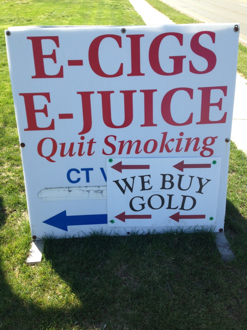 At least three stores had signs outside the shops that could be interpreted as claiming that vaping is a way to quit smoking tobacco cigarettes.
At least three stores had signs outside the shops that could be interpreted as claiming that vaping is a way to quit smoking tobacco cigarettes.
One common talking point from sales representatives touting the benefits of e-cigarettes is that they only contain a few ingredients: nicotine, propylene glycol, glycerin, water and flavorings — just what you find in “candy,” one staffer at a e-cigarette shop in the Milford noted. But while sales representatives in several shops assured TINA.org investigators that the ingredients in the vaping products were deemed safe for food use — or, in FDA parlance, GRAS, which means generally recognized as safe — the FDA specifically noted in its finalized regulations that “GRAS status for a food additive does not mean that the substance is GRAS when inhaled, since GRAS status does not take inhalation toxicity into account. …”
More to do
While the FDA’s finalized rule doesn’t yet extend the same limitations on advertising and marketing as on traditional tobacco products– such as prohibiting commercials on television — the agency said it may take further action to regulate the industry.
Michael Felberbaum, a spokesman for the FDA, cautioned that the rule apply to vape shop retailers, including owners of “brick and mortar” shops, as well as manufacturers.
In Connecticut, where vape shop retailers and manufacturers have to register with the state Department of Consumer Protection to obtain permits, state lawmakers are reviewing the FDA’s rule and are holding hearings on whether the state should do more to regulate e-cigarettes and vaping products.
Click here for TINA.org’s database of e-cigarette stores visited and its criteria for categorizing misleading claims.
UPDATE 10/20/16: The storefront window of Vape LLC in East Haven no longer says “Vape The Habit.”
FDA says it is aware of the situation but declined to comment on the regulatory status of disposable e-cigarette brand.
TINA.org agrees with health groups that Juul’s current campaign disseminates an illegal smoking cessation claim.
FDA to consider legal pathways for cannabis-derived compound.
